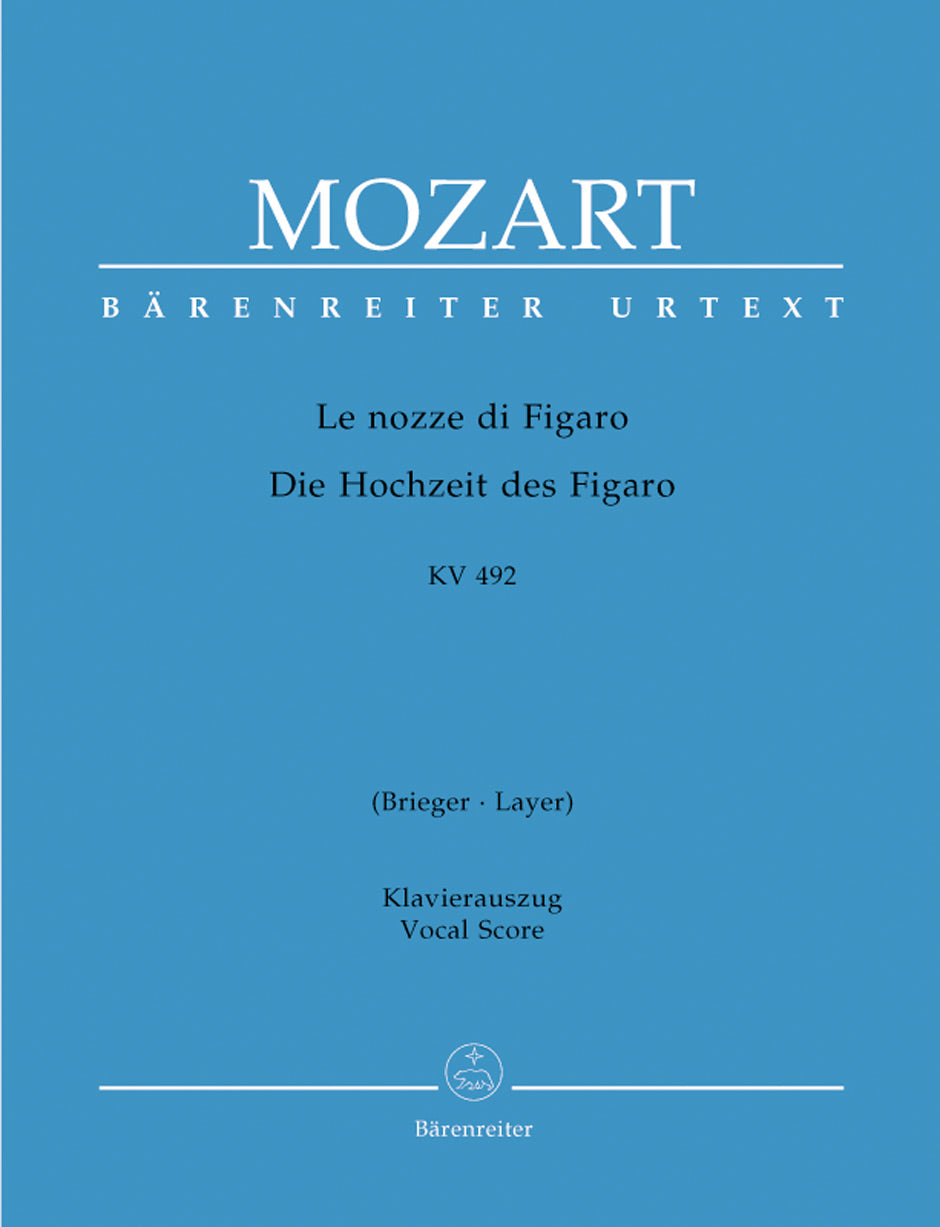

BARENREITER - 345062
Mozart Marriage of Figaro K. 492 Vocal Score (soft cover) (Transl: Brieger & Friedemann)
Composer: Wolfgang Amadeus Mozart
Publisher: Bärenreiter
Instrumentation: Voice
Format: Vocal Score
Binding: Paperback
Dimensions: 10.6 in x 7.5 in
Pages: 557
Mozart Marriage of Figaro K. 492 Vocal Score (soft cover) (Transl: Brieger & Friedemann)
Juilliard Store
144 West 66th Street
New York NY 10023
United States
Choose options

Mozart Marriage of Figaro K. 492 Vocal Score (soft cover) (Transl: Brieger & Friedemann)
Juilliard Store
144 West 66th Street
New York NY 10023
United States
Mozart Marriage of Figaro K. 492 Vocal Score (soft cover) (Transl: Brieger & Friedemann)
Juilliard Store
144 West 66th Street
New York NY 10023
United States
Editor: Finscher, Ludwig
Comments: German translation by Nicolas Brieger and Friedemann Layer
Arranger: Epplée, Eugen
Orchestral scoring : 5SSolo/2TSolo/4BSolo/Mixed choir/Orch
Language(s) of work: D/I
Product format: vocal score, Urtext edition
Binding: Paperback
Pages / Format: XIX, 557 - 27,0 x 19,0 cm
This vocal score is based on Ludwig Finscher’s 1973 edition of ‘Le nozze di Figaro’ published in the ‘New Mozart Edition’ and the critical commentary by Ulrich Leisinger published in 2007.
Many of the sources for Mozart’s first opera from the Lorenzo Da Ponte trilogy only became available to scholars again after the ‘New Mozart Edition volume was published. These include the autograph scores of acts 3 and 4, now held at the Biblioteka Jagiello ka in Kraków, significant portions of the original sets of parts and acts 2 to 4 of the conductor’s copy from the first performance of 1786.
These original sources, now available again, offer compelling solutions to several previously unresolved questions.
